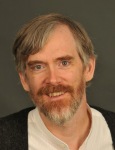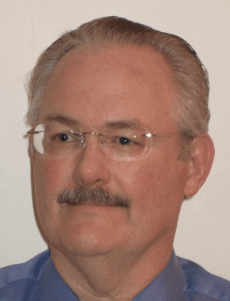| Graduate Student Pedagogical Training as a Key Component of Stand-alone MA Programs in Religious Studies |
![PDF-NOTE: Internet Explorer Users, right click the PDF Icon and choose [save target as] if you are experiencing problems with clicking.](http://rsnonline.org/templates/rsntemplate-smallmasthead/images/pdf_button.png) |
 |
|
Page 1 of 3 Brian C. Wilson, Western Michigan University, and Stephen G. Covell, Western Michigan University
Why Teach Teaching?Over the twenty-two years it has been in operation, the MA program in comparative religion at Western Michigan University has developed a unique focus: graduate pedagogical training in religious studies. Part of this development, of course, was due to the pragmatic issue that our graduate student funding has always been tied to graduate students teaching introductory courses as instructors of record, and thus to our consequent desire to maintain the overall quality of teaching in our department. However, we also realized that one of the greatest problems of graduate education in this country is that most students never receive any systematic pedagogical training throughout their graduate careers. Graduate students may spend years honing their research skills in PhD programs only to be confronted with the fact that they are completely unprepared for what will be a fundamental aspect of their professional lives at most colleges and universities: teaching undergraduates. Both authors remember their struggles as newly minted professors when they first tried to confect courses on the fly during their first semesters at Western Michigan University. Both remember coming to the realization that good teaching wasn’t as easy as it looked after all, and then spending countless panicked hours individually reinventing the pedagogical wheel. With this in mind, and cognizant of the reality that most PhD programs will never give teacher training the emphasis it deserves, we decided that our stand-alone MA was the ideal place to focus on the pedagogy of religious studies and to prepare our graduate students as teachers. As we developed the pedagogical focus of our program, we discovered something we hadn’t expected: far from being resistant to such training, our MA students relished it. Indeed, some of our students — perhaps naïve to the realities of graduate education and attracted to the academic life as much for the classroom as the study — simply expected such teacher training would necessarily form a part of any MA program. Others did not have such expectations, but they, too, have been thrilled to get pedagogical training in such a cogent manner and from faculty who value it so highly. New applicants to the program now tell us that our emphasis on religious studies pedagogy is one of the reasons they choose Western Michigan University over other programs; and in exit interviews, our outgoing MAs now consistently cite the pedagogical component as one of the most useful aspects of the program. We have also heard from our graduates who go on to complete doctoral work and are lucky enough to land academic jobs that their background in teaching helped make them competitive in the job market, allowing them to stand out against other candidates who can only demonstrate research competence. Even for those of our MAs who do not go on for doctoral training, their ability to teach well has been an inestimable advantage to them in careers outside of academia or as contingent faculty within academia. The ability to teach well, after all, is a skill that easily translates into the corporate or government worlds, where the ability to parse Sanskrit or an intimate knowledge of all 2,097 pages of the Urantia Book does not. Moreover, as the job market tightens and PhD programs necessarily adjust the numbers they accept in response, the stand-alone MA will take on even greater importance as a supplier of the contingent faculty needed to staff the growing number of religious studies programs that are no longer hiring tenure-track instructors. |


 Stephen G. Covell is chair of the department of comparative religion and the Mary Meader (Associate) Professor of Comparative Religion at Western Michigan University. From 2006–2011, Covell served as the founding director of Western Michigan University’s Soga Japan Center. His teaching responsibilities include religions of Japan, world religions pedagogy, death and dying, and religion and state. Covell has published widely on various aspects of Japanese religions and is currently working on a book on the contemporary teachings of Japanese Buddhism.
Stephen G. Covell is chair of the department of comparative religion and the Mary Meader (Associate) Professor of Comparative Religion at Western Michigan University. From 2006–2011, Covell served as the founding director of Western Michigan University’s Soga Japan Center. His teaching responsibilities include religions of Japan, world religions pedagogy, death and dying, and religion and state. Covell has published widely on various aspects of Japanese religions and is currently working on a book on the contemporary teachings of Japanese Buddhism. Brian C. Wilson is professor of American religious history and past chair of the department of comparative religion at Western Michigan University. His areas of interest include nineteenth century new religious movements, religion in the Midwest, theory and method in the academic study of religion, and comparative philosophy of religion. Among Wilson’s publications are Christianity (Routledge, 1999); Reappraising Durkheim for the Study and Teaching of Religion Today (co-editor with Thomas A. Idinopulos, Brill, 2001); and Religion as a Human Capacity: A Frestschrift in Honor of E. Thomas Lawson (Brill, 2004). His most recent book, Yankees in Michigan (2008), is part of the Discovering the Peoples of Michigan Series published by Michigan State University Press. Wilson is currently working on a new book, The Rise and Fall of the Temple of Health: Religion, Medicine, and the Battle Creek Sanitarium.
Brian C. Wilson is professor of American religious history and past chair of the department of comparative religion at Western Michigan University. His areas of interest include nineteenth century new religious movements, religion in the Midwest, theory and method in the academic study of religion, and comparative philosophy of religion. Among Wilson’s publications are Christianity (Routledge, 1999); Reappraising Durkheim for the Study and Teaching of Religion Today (co-editor with Thomas A. Idinopulos, Brill, 2001); and Religion as a Human Capacity: A Frestschrift in Honor of E. Thomas Lawson (Brill, 2004). His most recent book, Yankees in Michigan (2008), is part of the Discovering the Peoples of Michigan Series published by Michigan State University Press. Wilson is currently working on a new book, The Rise and Fall of the Temple of Health: Religion, Medicine, and the Battle Creek Sanitarium.